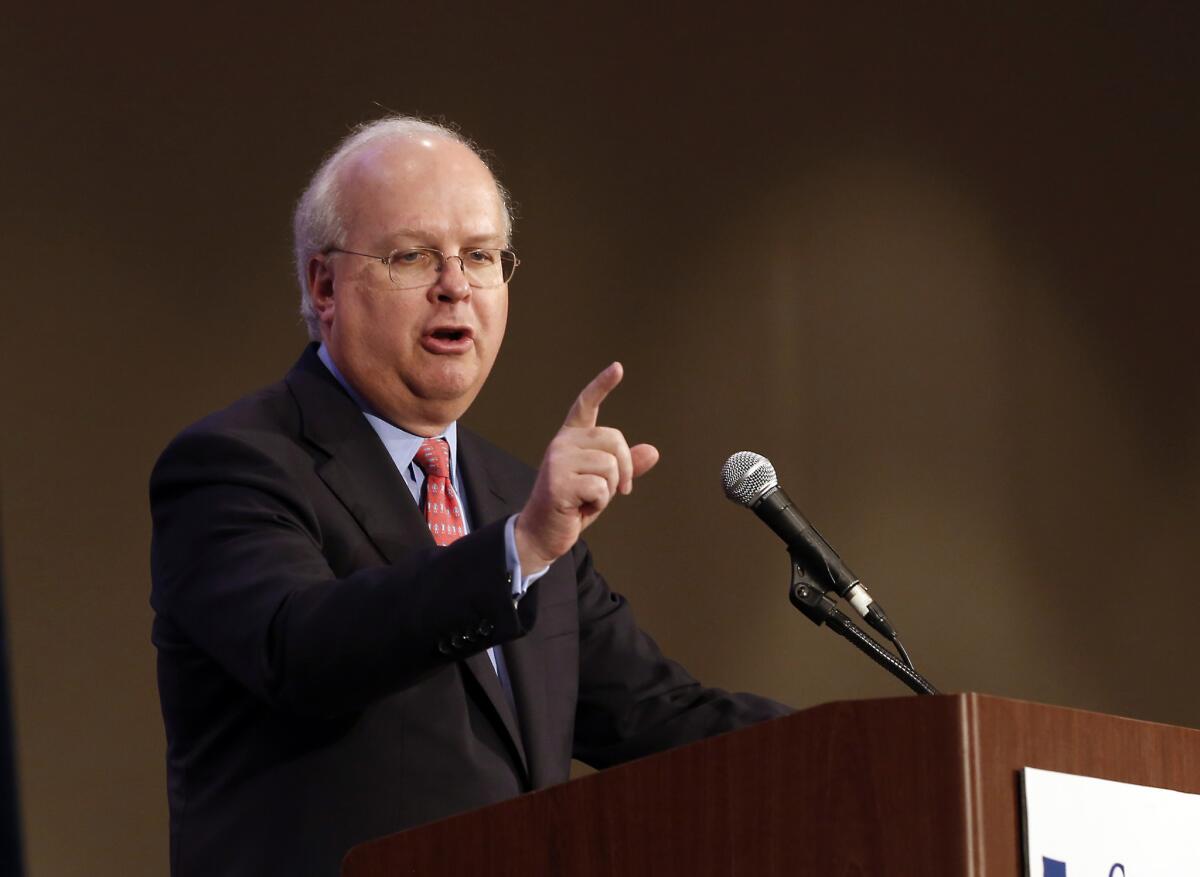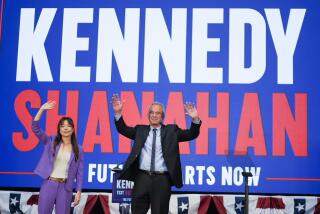McManus: Following Rove’s muddy path

President Obama owes Karl Rove a thank-you note.
During last year’s election campaign, Rove and other Republicans showed how federal tax law could be stretched to turn a political committee into a “social welfare” organization. These nonprofit organizations, known as 501(c)(4)s, are defined by the Internal Revenue Code as “primarily engaged in promoting in some way the common good and general welfare.”
This year, with the president’s blessing, former Obama campaign aides have followed in Rove’s muddy path and launched a social welfare organization of their own, called Organizing for Action (with, happily, the same initials as Obama for America).
This new organization has decided to improve humanity by keeping Obama’s grass-roots supporters mobilized, and by raising money for television commercials to criticize Republicans who stand in the president’s way.
There’s nothing wrong with political organizing, of course; encouraging citizens to get involved is a good thing. There’s nothing inherently wrong with political commercials either, as long as the ads are truthful and the source of funds is clear.
But using the “social welfare” clause to run a political campaign is a stretch when Republicans are doing it, and it’s just as tawdry in the hands of Democrats. It’s even more unseemly, somehow, when the White House lends the president’s prestige to such an operation.
“It’s like selling the Lincoln Bedroom, but without the sheets,” charges Bob Edgar, a former Democratic congressman from Pennsylvania who’s now president of Common Cause, the nonpartisan reform group. “It smells.”
Still, it was a stroke of unalloyed chutzpah when Rove denounced the idea, saying he never could have gotten away with it in George W. Bush’s White House. I’d bet his real regret is that he just didn’t think of it back then.
Obama’s lieutenants, stung by the criticism, have scrambled to announce new, self-imposed rules to reduce the appearance that Organizing for Action will give donors special access to the president.
Chairman Jim Messina issued a statement promising that the organization would take no money from corporations or lobbyists, and would identify big donors and how much they give. (Under the law, 501(c)(4)s are allowed to take corporate money and to keep donations anonymous, a dodge Rove has embraced without apology.) And White House Press Secretary Jay Carney insisted that big donors and bundlers wouldn’t be allowed to purchase meetings with the president.
But another board member told me that Obama may still meet with the organization’s leaders when it holds its first big meeting in Washington this week.
“This is a lot of noise over nothing,” the board member said. “It’s ridiculous to think the president can’t meet with his own supporters.”
In a practical sense, at least, that’s true. As Edgar notes, many of Organizing for Action’s donors will be the same people who gave money to the Obama campaign or its big-dollar “super PAC” during the election. “They’ve already got all the access money can buy,” he said.
In one respect, even without Messina’s new rules, Organizing for Action is better than other 501(c)(4)s: At least we know who’s behind it. Rove’s organization, Crossroads GPS, buys television commercials without saying who paid for them — the political equivalent of an anonymous letter.
Still, Organizing for Action shares one unattractive quality with Rove’s 501(c)(4): hypocrisy. For legal reasons, it claims to be nonpartisan, and it says it isn’t attempting to influence elections. But its first advertising buy, criticizing members of Congress who don’t support Obama’s gun-control proposals, was directed only at Republicans, even though there are Democrats who are waffling on gun control, too.
The bigger problem is that Obama’s embrace of the organization is another sign of how remote the goal of campaign reform has become and how thoroughly Obama has abandoned that cause.
When Obama began running for president in 2007, he sounded like a genuine reformer. He said he wanted to limit the role of money in campaigns and create the most transparent presidential administration in history. But in practice, he has walked away from that piece of his agenda, beginning when he refused public financing for his 2008 campaign.
Aides and supporters say he’s had to play by the rules that are in place, including the Supreme Court’s 2010 rulings on corporate contributions, and they have a point. If Obama didn’t take advantage of every opening, they argue, it would amount to “unilateral disarmament.”
But advocates of reform were hoping for more. “He won the election,” Edgar said. “Now he has an opportunity to lead. But what he’s doing with OFA doesn’t look like any kind of reform.”
Ever since Richard M. Nixon, presidents have waged a strategy of “permanent campaigning,” using their ability to mobilize supporters to put pressure on Congress and solidify the position of their party. But Obama is taking it a big step further, not only using the bully pulpit of the presidency but adding campaign-style fundraising, advertising and grass-roots organizing as well.
The practices he’s using are all pragmatic, legal and already employed by his opponents. But that doesn’t make them right.
Follow Doyle McManus on Twitter @DoyleMcManus
More to Read
A cure for the common opinion
Get thought-provoking perspectives with our weekly newsletter.
You may occasionally receive promotional content from the Los Angeles Times.







